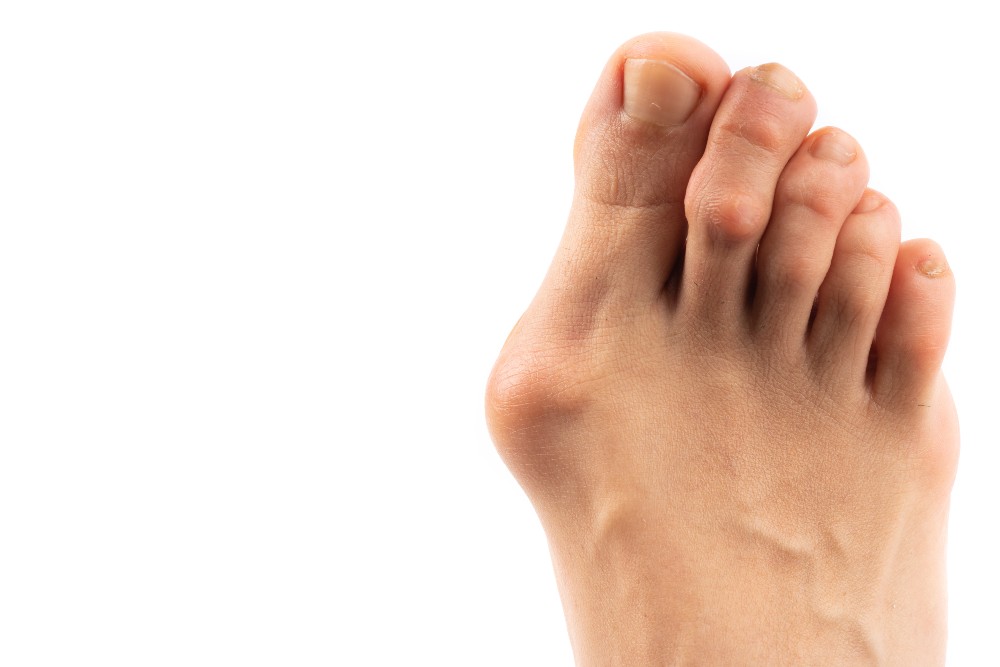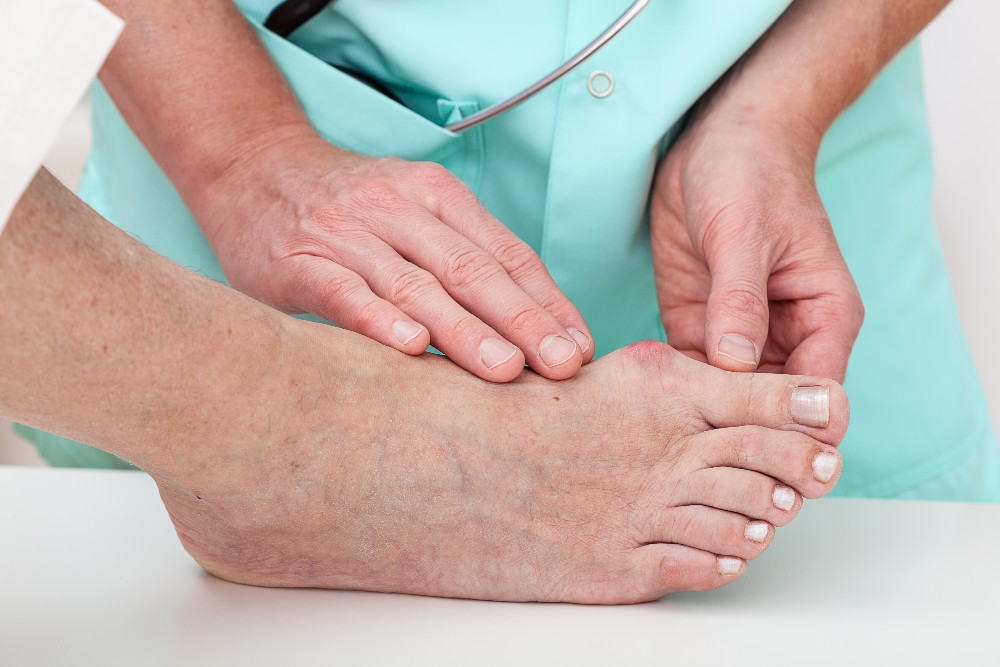Bunions
Have you ever heard of a bunion? It’s a foot deformity that occurs when the big toe joint becomes misaligned. According to Cleveland Clinic, “…up to 1 in 3 Americans have bunions. The foot problem is more common in older adults, especially women.”
What are Bunions?
A bunion is an abnormal growth located on the outside of your big toe that disrupts the foot’s natural structure. This bony growth develops over time and protrudes outward in a way that can make walking, standing, and even wearing shoes uncomfortable.
A bunion can form on one or both feet. Sometimes a bunion’s formation can cause other foot issues, including the development of corns and calluses.
What Causes Bunions?
Bunions can be caused by the natural shape of your foot and/or the way you walk. If you have an abnormal gait or foot structure, the pressure on your big toe joint can force it to bend inward, essentially making it possible for the bones near the front of your foot to move out of their proper position.
Bunions can also be caused by improper footwear. Pointed, narrow shoes—such as high heels—force your toes into an uncomfortable, crowded position. This type of footwear, which doesn’t give your toes the space they need, increases your risk of developing a bunion.
It’s possible for bunions to form as a result of an injury or arthritis, or due to standing for long periods. Some studies have indicated that bunions are hereditary, meaning that if you have family members with bunions, you are at an increased risk of developing a bunion during adulthood.
Bunion Treatment Options
If you have one or more bunions, you may be looking for treatment methods to remove the bunion and/or alleviate any pain you may be experiencing. Fortunately, there are numerous treatment options available, all of which can be discussed in greater detail with our trusted podiatrist, Dr. Gilmore.
Conservative Options
Two conservative, non-invasive options to treat the pain caused by bunions include bunion pads and custom orthotics. These treatments will not fix your bunions, but only help alleviate the pain caused by them.
Bunion Pads
Wearing shoes can aggravate your bunion, which can lead to tenderness and swelling. Bunion pads can help your feet feel more comfortable in your shoes by reducing pressure and preventing friction. These pads create a protective barrier between your shoes and the bunion. You can purchase bunion pads over the counter at your local drugstore.
Custom Orthotics
Custom orthotics are physician-prescribed medical devices that are inserted into your shoes. These durable, customized shoe inserts are manufactured after our podiatrist captures a detailed, precise scan of your feet. This scan takes into account not only the bunion but also the unique biomechanics of your feet. Many people find that custom orthotics help reduce the pain associated with bunions.
Bunion Surgery
Undergoing surgery to remove a bunion is the most ideal option if your bunion is causing you significant pain and/or negatively affecting your overall mobility.
Only Way to Fully Fix Bunions
Surgery is the only way to fix—and permanently eliminate—a bunion. During bunion surgery, our doctor will remove the bunion and realign the big toe joint. The surgical procedure you undergo will likely depend on the severity of the bunion itself, as well as the condition of the bones and connective tissue surrounding the joint.
Needs to be Done if the Bunion is Painful
For some people, bunions are a minor inconvenience. For others, the bunion can cause significant immense toe pain. If your bunion is both cumbersome and painful, and if bunion pads and/or custom orthotics are not offering you adequate pain relief, you may wish to consider talking to Dr. Gilmore about bunion surgery.
Let Us Fix Your Bunion!
Here at Capital Podiatry Associates, we are passionate about helping our patients get the relief they’re seeking from the foot/ankle ailments they are experiencing. When it comes to bunions, we understand that these growths can not only be frustrating but also very painful. Bunions are complex in that they can’t be reversed or go away on their own without treatment. Dr. Leland Gilmore would be happy to evaluate your bunion(s), answer your questions, address your concerns, and provide recommended treatment options.
Dr. Gilmore and his team at Capital Podiatry Associates are here for you. If you have a bunion, please get in touch with us. Our office is conveniently located at 8101 Hinson Farm Road, Suite 301 in Alexandria, Virginia.
You may fill out our online contact form on our website or call us at 703-560-3773. We look forward to serving you and providing you with the best foot and ankle care possible.

